
 Flash News
Flash News
Accident at "Shkalla e Tujanit", truck overturns in the middle of the road, driver injured
Vlora by-pass, work delays and cost increases
Milan are expected to give up on the transfer of Granit Xhaka
Inceneratori jashtë funksionit, përfshihet nga flakët fusha e mbetjeve në Elbasan
Accident on the Lezhë-Shëngjin axis, one injured
"Hydroelectric gold", The Guardian echoes Vjosa: How Europe's first wild river national park removed dams
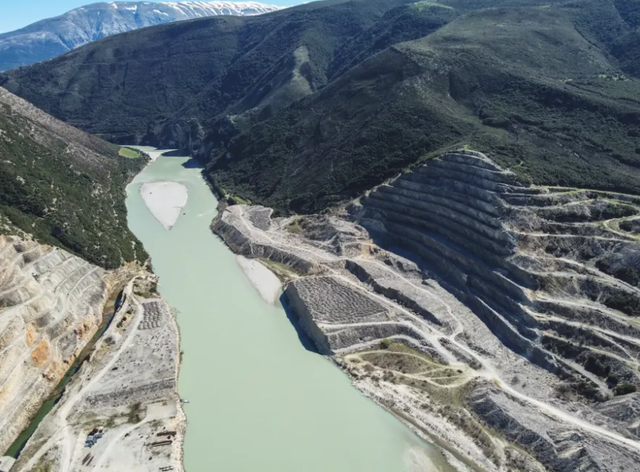
The Vjosa River was declared a National Park a week ago. "The Guardian" has dedicated an article to the Vjosa River, calling it the first wild river to be declared a National Park.
The article focuses on the construction of dams on the Vjosa River as it writes: "At one point, 45 dams were proposed on the Vjosa River, eight on the main river and 37 on its tributaries. Until now, the largest was the 50-meter-high Kalivac hydropower plant. You can still see the terraces cut into the hills on either side of the river, while long-abandoned earth movers remain on one bank, left by an Italian company that started work in 2007, before abandoning it. In the river beyond, the arm of a yellow digger lies, half submerged.”
The head of Riveratch, a Vienna-based NGO for river protection, Ulrich Eichelmann, and his allies from the Save the Blue Heart of Europe (STBHE) coalition, have campaigned relentlessly against what they call "hydroelectric gold". in the Balkans, where its most pristine and biodiverse rivers are threatened by more than 3,000 proposed dams.
Eichelmann notes the gravel islands where stone curlews lay their eggs, and the gorges where hawks nest. Complex underwater habitats support critically endangered European eels, whose numbers have declined by 95% since the 1980s, as they migrate 270 km (168 miles) upstream to the river's source in the Pindus Mountains in Greece.
"That's the attacker!" Eichelmann says, as his eyes wander to the distant fadromes. "It's a symbol of war - but the river won."
"The dam would destroy the whole system," says Eichelmann. "The water will not be clean, the gravel will be blocked. The dam will collect sediment and the whole thing will collapse. A tank may look beautiful, but underneath it is stagnant.”
After the failed Italian project, the Albanian government, which receives almost all of its domestic energy production from hydropower, awarded a concession to build the dam to a Turkish-Albanian consortium in 2017.
Ulrika Åberg, a project officer at IUCN, says: "When people talk about hydropower as renewable, they say: 'It's just water, it's the same water in the system.' But what it does to a river is not renewable. It destroys habitats that have been built up over years."
If the planned dam were to be built on the tributary, it would divert the river 7 km downstream and bring no profit to the community, which is interested in developing river-based tourism.
The marathon campaign to get protected park status for Vjosa involved years of protests, lawsuits and investigations questioning environmental impact assessments submitted by hydropower companies.
The campaign attracted support from scientists, EU parliamentarians and celebrities including Leonardo DiCaprio. In 2018, Eichelmann accompanied international scientists to the banks of Vjosa to carry out sampling. They found 1,000 species of plants and animals, 13 of which were globally threatened.
Latest news








Golem and Qerret without water at the peak of the tourist season
2025-07-01 21:09:32

Euractiv: Italy-Albania migrant deal faces biggest legal challenge yet
2025-07-01 20:53:38
BIRN: Brataj and Fevziu victims of a 'deepfake' on Facebook
2025-07-01 20:44:00

Vlora by-pass, work delays and cost increases
2025-07-01 20:24:29



Milan are expected to give up on the transfer of Granit Xhaka
2025-07-01 19:41:25


The silent but rapid fading of the towers' euphoria
2025-07-01 18:58:07
Donald Trump's daughter says 'goodbye' to June with photos from Vlora
2025-07-01 18:48:47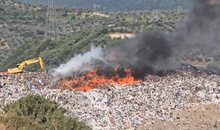

Tirana vote recount, Alimehmeti: CEC defended manipulation
2025-07-01 18:15:05

Left Flamurtari, striker signs with another Albanian club
2025-07-01 17:43:14
Accident on the Lezhë-Shëngjin axis, one injured
2025-07-01 17:19:35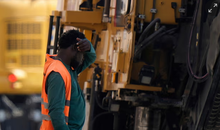
June temperature records, Italy limits outdoor work
2025-07-01 17:03:15

Meet Kozeta Miliku, named one of the top five scientists in Canada
2025-07-01 16:32:12
"Arsonist" arrested for repeatedly setting fires in Vlora (NAME)
2025-07-01 16:29:45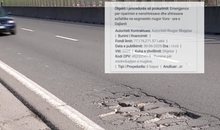
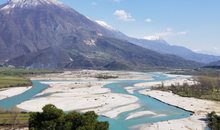
The ecological integrity of the Vjosa River risks remaining on paper
2025-07-01 16:09:40
Heat Headache/ Causes, Symptoms and Measures You Should Take
2025-07-01 16:01:13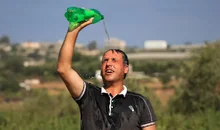
UN: The world must learn to live with heat waves
2025-07-01 15:54:50

Three cars collide in Tirana, one of them catches fire
2025-07-01 15:38:16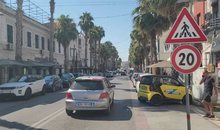

Shehu: Whoever doesn't want Berisha, doesn't want the opposition 'war'!
2025-07-01 15:19:20
Berisha requests the OSCE Assembly: Help my nation vote freely
2025-07-01 15:11:46
Be careful with medications: Some of them can harm your sex life
2025-07-01 15:00:32

'Golden Bullet'/ Lawyers leave the courtroom, Altin Ndoc's trial postponed again
2025-07-01 14:44:52
EU changes leadership, Kosovo in a number of places
2025-07-01 14:40:01
Should we drink a lot of water? Experts are surprised: You risk hyponatremia
2025-07-01 14:30:20
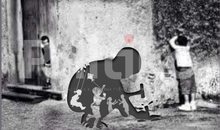

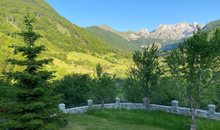
Lëpusha beyond Rama's postcards: A village that is being silently abandoned
2025-07-01 13:41:56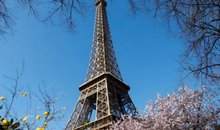
Scorching temperatures in France close the Eiffel Tower
2025-07-01 13:29:35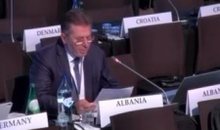
Media: China, Iran and North Korea, a threat to European security
2025-07-01 13:20:12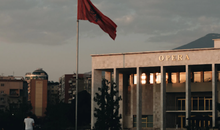
Albania drops in global index: Less calm, more insecure
2025-07-01 13:09:35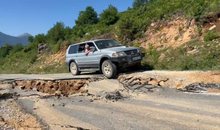
Road collapses, 5 villages in Martanesh risk being isolated
2025-07-01 13:03:04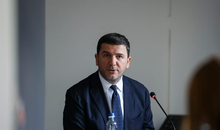
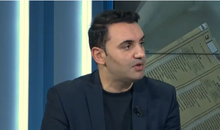
Këlliçi: Opposition action to be decided in September
2025-07-01 12:48:49
Four tips for coping with the heat wave
2025-07-01 12:38:53
Car hits pedestrian on Transbalkan road
2025-07-01 12:27:09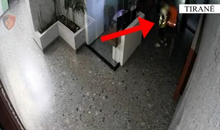
Authors of 9 robberies, Erjon Sopoti and Abdullah Zyberi arrested
2025-07-01 12:15:56

He abused his minor daughter, this is a 36-year-old man in custody in Fier
2025-07-01 11:50:34
The constitution of the Kosovo Assembly fails for the 40th time
2025-07-01 11:40:08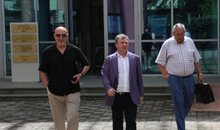

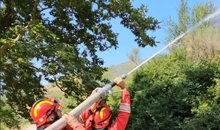

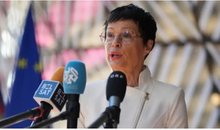
EU confirms support for the Western Balkans
2025-07-01 10:50:45
Serious in Fier! Father sexually abuses his minor daughter
2025-07-01 10:32:33
One year since the passing of the colossus of Albanian literature, Ismail Kadare
2025-07-01 10:25:26
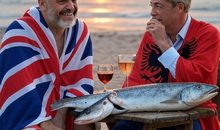

They supplied the 'spaçators' with drugs, two young men are arrested in Tirana
2025-07-01 09:54:09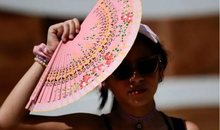
Europe is "scorching", how dangerous are high temperatures?
2025-07-01 09:48:56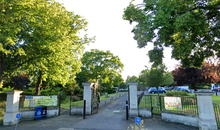


Nigel Farage in Albania: but why?
2025-07-01 09:13:12
Xama: The "Partizani" dossier is quite weak and without facts!
2025-07-01 09:04:47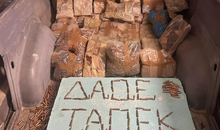

Foreign exchange, the rate at which foreign currencies are sold and bought
2025-07-01 08:35:39
Fabricators again warn of factory closures and job cuts
2025-07-01 08:21:30
Horoscope, what do the stars have in store for you today?
2025-07-01 08:08:59
Scorching hot, temperatures reaching 40°C
2025-07-01 07:57:12
Morning Post/ In 2 lines: What mattered yesterday in Albania
2025-07-01 07:42:59
Recount after May 11, Braho: I had no expectations for massive vote trafficking
2025-06-30 22:54:18

Second hearing on the protected areas law, Zhupa: Unconstitutional and dangerous
2025-06-30 22:18:46



Israel-Iran conflict, Bushati: Albanians should be concerned
2025-06-30 21:32:42

Fuga: Journalism in Albania today in severe crisis
2025-06-30 21:07:11
"There is no room for panic"/ Moore: Serbia does not dare to attack Kosovo!
2025-06-30 20:49:53

Temperatures above 40 degrees, France closes nuclear plants and schools
2025-06-30 20:28:42
Lavrov: NATO is risking self-destruction with new military budget
2025-06-30 20:13:54
Turkey against the "Bektashi state" in Albania: Give up this idea!
2025-06-30 20:03:24

Accused of sexual abuse, producer Diddy awaits court decision
2025-06-30 19:40:44


